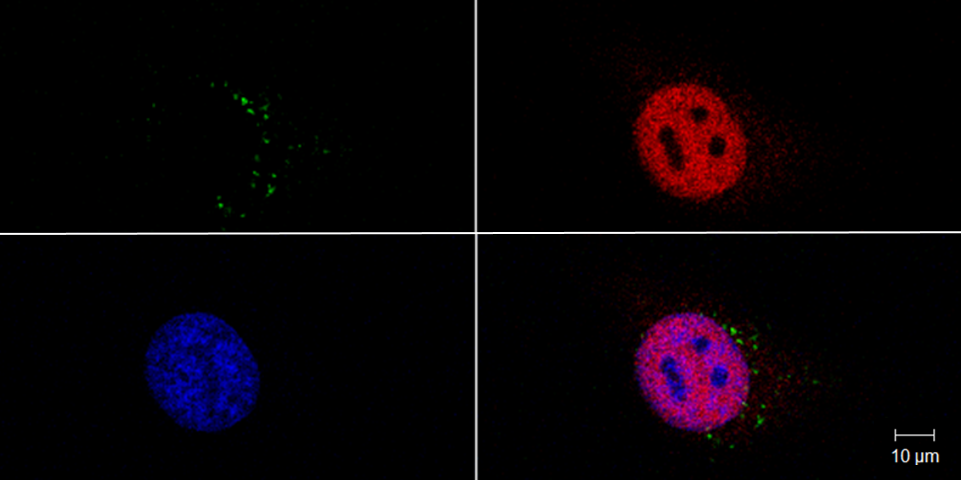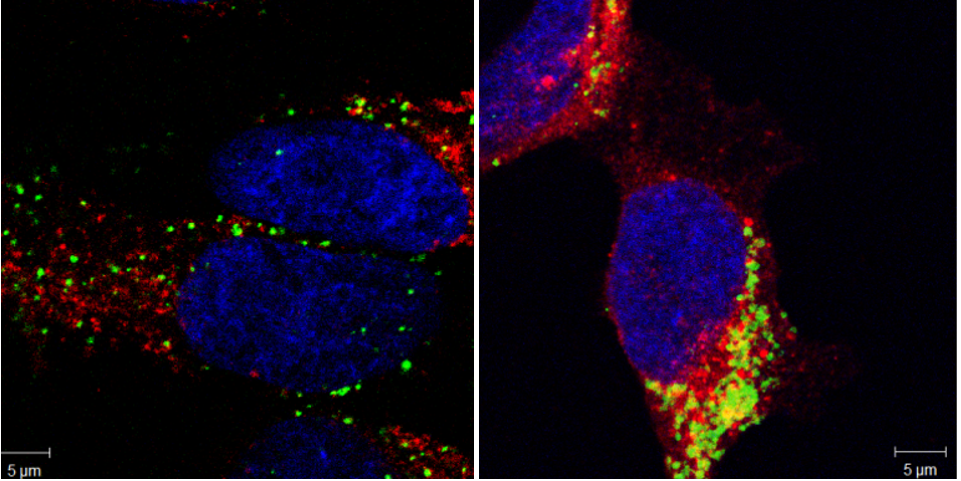
© A. S. Stolle

© B. Grabowski

© A. S. Stolle

© B. Grabowski

© A. S. Stolle

© B. Grabowski






Wir konnten zahlreiche T3SS-abhängige Effektoren Gram-negativer Pathogene als ’zell-penetrierende Effektorproteine (CPE)’ identifizieren. CPE aus E. coli, Yersinia und Shigella werden hinsichtlich ihrer Aufnahme, des intrazellulären ’traffickings’, der Modulation zellulärer Signalwege, der Möglichkeiten des Transports heterologen cargos und ihres Effekts auf zelluläre Barrieren (2-D und 3-D) mit und ohne ’shear stress’ charakterisiert. Zusätzlich untersuchen wir therapeutische Wirkungen in verschiedenen Modellen für Autoimmunkrankheiten in der Maus.
Forschungsgebiet: Infektionsbiologie
Dr. rer. nat. Christian Rüter (07/2016 - 06/2024)
Prof. Dr. rer. nat. M. Alexander Schmidt (07/2012 - 06/2020)
Projektlaufzeit: Juli 2012 - Juni 2024
Originalartikel
Baumann D., Salia H., Greune L., Norkowski S., Körner B., Uckeley Z.M., Frankel G., Guenot M., Rüter C., Schmidt M.A. (2018) Multitalented EspB of enteropathogenic E. coli (EPEC) enters cells autonomously and induces programmed cell death in THP-1 cells. Int. J. Med. Microbiol. 308:387–404.
GomarascaM., MartinsT.F.C., Greune L., Hardwidge P.R., Schmidt M.A., and RüterC. (2017) Bacterium-derived CPP deliver gentamicin to kill intracellular pathogens. Antimicrob. Agents Chemother. 61(4):e02545-16.
Reviews